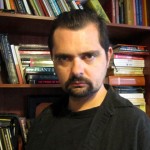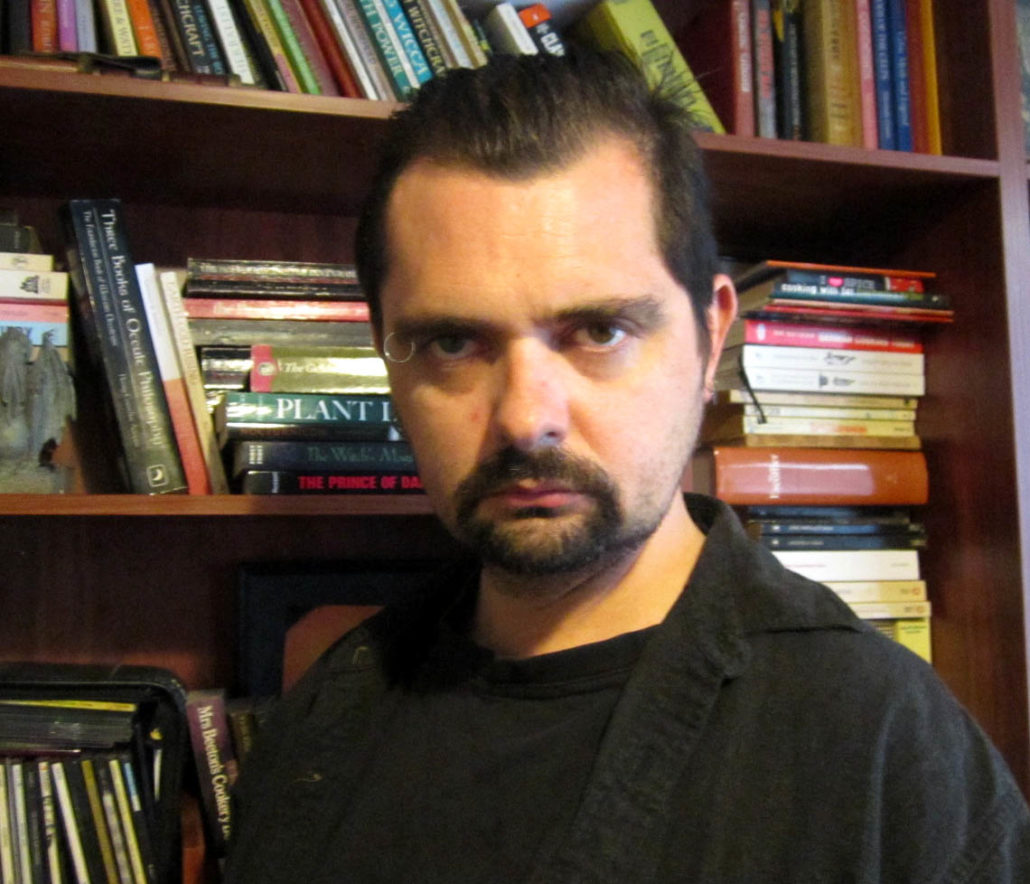 Multiplying the Modernities: Reflections on the 2012 AASR/AABS Conference
Multiplying the Modernities: Reflections on the 2012 AASR/AABS Conference
By Morandir Armson, University of Sydney
A Religious Studies Project Conference Report, Australian Association for the Study of Religions – 28-30 September 2012 – Sydney, Australia
I first attended the annual AASR conference in 2006. Although I was a good eight years older than my fellow honours students, I felt very small and alone, talking about my Honours thesis topic; UFO-based religions and religious discrimination.
I have maintained since that Critical Discourse Analysis, does not an entertaining topic make. But I survived, and going drinking afterwards with Doug Ezzy, Marion Dalton et al. helped to dull the pain.
I’ve been to more AASR conferences since and have a lot of positive memories gathered therefrom. I would like to share some of my experiences from this year’s conference.
AASR/AABS 2012 – Multiple Religious Modernities.
After gathering at the University of Western Sydney (Parramatta Campus), nibbling nibbles, collecting our goodie bags and name tags, and milling about drinking our free wine, we were all ushered into a very nice lecture theatre to hear the welcoming speeches and the Presidential Address. (Unbeknownst to many, the Women’s Caucus and the AASR and AABS committee meetings had taken place earlier that day). Professor Douglas Pratt served us a nicely cooked address, entitled “The Persistence and Problem of Religion: Modernity, Continuity and Diversity”. Professor Pratt spoke at length, of the predicted “end” of religion, which was confidently predicted, only half a century ago, and of the religiously-based violence which seems to bedevil the world. He even delved into my areas of expertise once or twice, mentioning the Discordian Society and the Flying Spaghetti Monster, eliciting a titter or two from the audience. (Alas, only Adam Possamai laughed at my Cthulhu Mythos joke during the Q&A session). In the end, Professor Pratt presented more questions than answers – and that, it seemed, was his intention. His contention – that modern religious extremism can be seen to be a reaction to modern religious pluralism, an attempt to impose a truth, an authority, a single way, and that extremist secularists can and do exist – was well presented and seemed to come from a man that genuinely loved the study of religion. And this kind of manifestation of genuine pleasure in, and love of religious studies was a recurring theme throughout the weekend.
A question that Professor Pratt never asked though, was what exactly modernity was. This was a question that seemed to hover unseen above many of the sessions, and sparked a fair chunk of rigorous and, dare I say it, heated discussion. And do you know, we properly nailed it down. None of us. This kind of question, involving the assumed definitions of terms, can be a little difficult. Like wading through syrup or tying knots in sand. But, as is often the case, we ended up with a group of six, passionately arguing and ending up with eight different definitions.
Overall, we had a fantastic depth and breadth of scholarship displayed throughout the weekend. Many of the presenters were students and some indeed had been students and were now out of the academy completely. All of the presenters however, were alike in one way; their love of, and immersion in, religious studies was both profound and genuine.
Alas, the conference had five parallel streams, so an unpleasant choice was forced upon us all – not “what do I want to see”, but rather “what can I bear missing”. And sometimes, it was a very unpleasant choice. What did Farjana Mahbuba have to say about the ‘invisible presence’ of Bangladeshi women? I don’t know, I was in the Paganism and Shamanism stream, listening to Michelle White (Independent) and Dominique Wilson (University of Sydney) speaking on Pagan Pluralism and the archetype of the Wise Man respectively. I’d make the same choice again, but I’d still regret it.
Overall, the conference featured ninety speakers, presenting one presidential address, two memorial lectures, and eighty-eight papers. They covered an impressive array of topics, from the spiritual aspects of home-birthing, to the phenomenon of Christians that seek membership of outlaw motorcycle clubs, to religious pilgrimage in Myanmar, and Shariah in the context of Australian law.
I was lucky enough to be presenting with two fascinating and erudite presenters. The first was John McGuire (University of Western Sydney) whose examination of portrayals of Islam and Muslims in American superhero comics, based on his PhD thesis, was worth going a long way to see. It was both heartening and slightly disconcerting to see another presenter using superhero comic books as their primary source material. John’s knowledge of his material and the depth in which he has explored the socio-religious elements thereof are both impressive and he gave us a wonderful insight into the themes of Islam in post-11th of September superhero comics. The second presenter in my stream was Lauren Bernauer (University of Sydney), who spoke on the re-enchantment of modernity, using the Percy Jackson and the Olympians pentalogy, the television series Supernatural and the MMOG The Secret World as her examples. She gave a beautifully cogent examination of hidden worlds, fan communities, and ways in which the modern world is examined through a re-enchanted lens. I for one, will be very glad if she publishes her findings. My own unworthy contribution, examining themes of occult resurrection within Golden Age and Dark Age superhero narratives, seemed to be reasonably well-received.
When one has such a wealth of material to examine, it becomes difficult to pick favourites. There were some real highlights.
- Sylvie Shaw (University of Queensland) delivering the Penny Magee Lecture, on the religious and moral aspects of climate change. Her contention; that religious groups and climate scientists would do well to engage together, in an effort to inform public policy was argued with both passion and humour. Her arguments surrounding the role of religious groups in disaster relief and the creation of civil religion was well-constructed and had a little of that “why hadn’t I thought of that before” feeling – always a sign of a well argued thesis.
- Christina Rocha, speaking in the ‘Religion and Travel’ stream (the stream which also included Alex Norman and Pheroza Daruwalla) gave us an examination of Abadiânia, a tiny hamlet in central Brazil, which has been transformed by devotees of John of God, a local medium-healer.
- Carole Cusack delivering the Charles Strong Lecture, on “Fictional Religions and Religious Fictions: Narratives of Secularisation and Sacralisation at Play in Multiple Modernities”. I was very interested in this, as my own work has brought me into contact with the Discordian Society, the Illuminates of Thanateros, and the Church of Satan, groups that strongly value play, absurdism, and the use of fictional rituals. Dr Cusack favoured us with a lecture both illuminating and adeptly argued. It was clear that many in the audience were unfamiliar with concepts such as Discordianism, the Church of the SubGenius and the Flying Spaghetti Monster.
Overall, the 2012 AASR/AABS conference was delightful. And, as is usually the case, one is left with bitter-sweet memories. I would have loved to continue my discussion with John McGuire (University of Western Sydney) about the shockingly unpopular black Captain America (who was also a Muslim convert). I wanted to keep talking to Milad Milani (University of Western Sydney) and Glenys Eddy (University of Sydney) about violence and the indoctrination of men, in modern Western cultures. I wanted to talk about Lovecraft and the Cthulhu Mythos with Adam Possamai (University of Western Sydney). But we only had two-and-a-half days. And they were pretty full days at that.
And did we ever find a satisfactory answer to the question of what is modernity? No. Like the Snark, which was really a Boojum, modernity is a slippery creature, which grows ever more elusive, the closer one draws to it. The hunt goes on!
This material is disseminated under a Creative Commons Attribution-NonCommercial-NoDerivs 3.0 Unported License. and can be distributed and utilised freely, provided full citation is given.
About the Author:
 Morandir Armson is a PhD candidate at the University of Sydney in the department of Studies in Religion. His thesis explores the interrelations between popular occultism, contemporary Paganism and online communities, connected by an examination of the role which chaos magic and paradigm shifting has had on all of these areas. Forthcoming publications include an article that examines the shifts in meaning in occult dichotomies, which popular, Internet-based occult communities have wrought.
Morandir Armson is a PhD candidate at the University of Sydney in the department of Studies in Religion. His thesis explores the interrelations between popular occultism, contemporary Paganism and online communities, connected by an examination of the role which chaos magic and paradigm shifting has had on all of these areas. Forthcoming publications include an article that examines the shifts in meaning in occult dichotomies, which popular, Internet-based occult communities have wrought.



